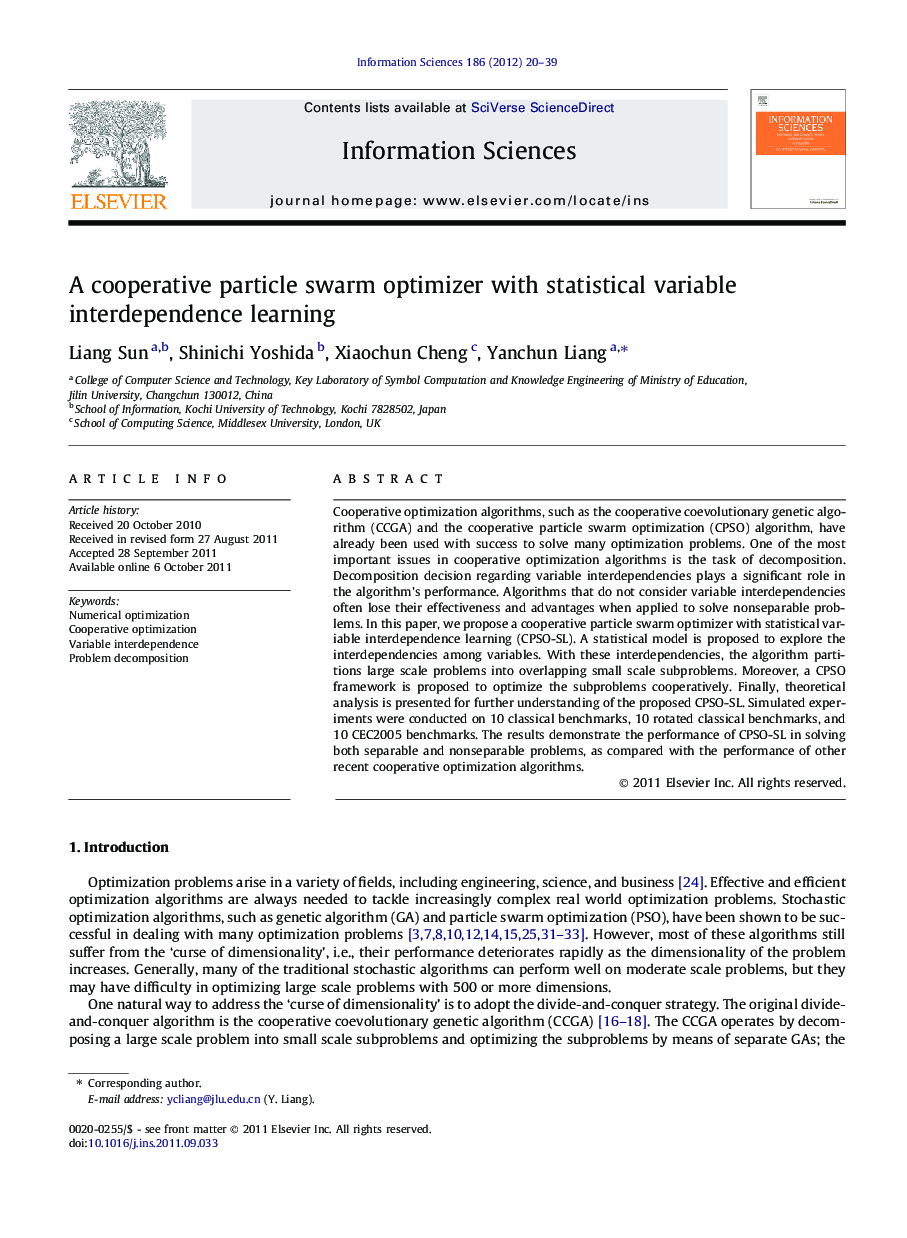| Article ID | Journal | Published Year | Pages | File Type |
|---|---|---|---|---|
| 394598 | Information Sciences | 2012 | 20 Pages |
Cooperative optimization algorithms, such as the cooperative coevolutionary genetic algorithm (CCGA) and the cooperative particle swarm optimization (CPSO) algorithm, have already been used with success to solve many optimization problems. One of the most important issues in cooperative optimization algorithms is the task of decomposition. Decomposition decision regarding variable interdependencies plays a significant role in the algorithm’s performance. Algorithms that do not consider variable interdependencies often lose their effectiveness and advantages when applied to solve nonseparable problems. In this paper, we propose a cooperative particle swarm optimizer with statistical variable interdependence learning (CPSO-SL). A statistical model is proposed to explore the interdependencies among variables. With these interdependencies, the algorithm partitions large scale problems into overlapping small scale subproblems. Moreover, a CPSO framework is proposed to optimize the subproblems cooperatively. Finally, theoretical analysis is presented for further understanding of the proposed CPSO-SL. Simulated experiments were conducted on 10 classical benchmarks, 10 rotated classical benchmarks, and 10 CEC2005 benchmarks. The results demonstrate the performance of CPSO-SL in solving both separable and nonseparable problems, as compared with the performance of other recent cooperative optimization algorithms.
